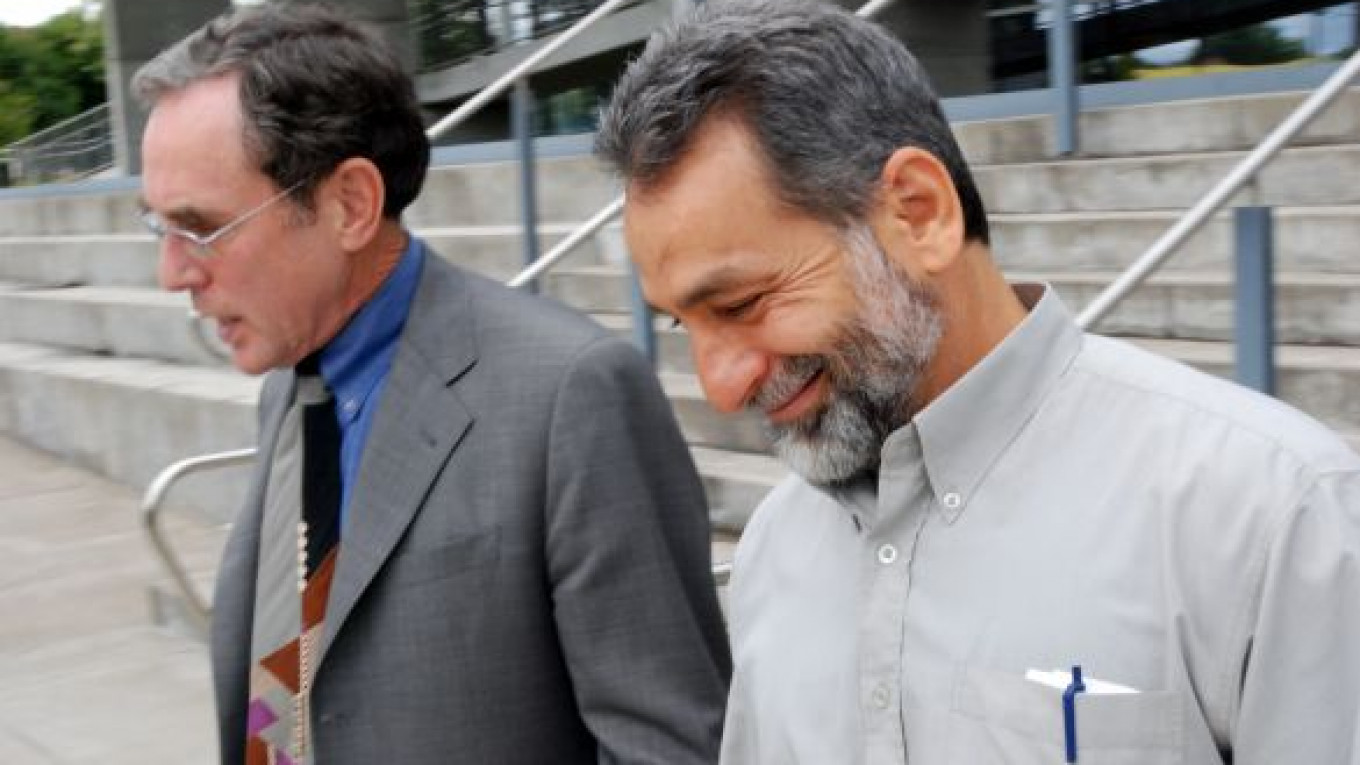EUGENE, Oregon — The leader of the U.S. branch of a defunct Islamic charity has been sentenced to nearly three years in prison after being convicted of helping smuggle $150,000 to Chechen insurgents via Saudi Arabia.
U.S. District Judge Michael Hogan said that while he had no doubt that the money went to the Islamic fighters battling the Russian army in Chechnya, as the prosecution maintained, there was no proof directly linking Pete Seda to terrorism.
For that reason, Hogan said he would not apply the so-called "terrorism enhancement" that could have sent Seda to prison for eight years. Instead, Hogan sentenced Seda to 33 months in prison, ordered him to pay the Internal Revenue Service $80,980 in restitution and allowed him to remain free for 60 days before reporting.
Seda, also known as Pirouz Sedaghaty, is an Iranian-born U.S. citizen who ran the U.S. chapter of the Al-Haramain Islamic Foundation based in Ashland, Oregon. He worked in Ashland as a tree surgeon and was an outspoken proponent of the peaceful aspects of Islam. He was known for marching in the local Independence Day parade with his camel.
Seda was convicted last year of tax fraud and conspiracy to defraud the government for helping Saudi Arabian national Soliman Al-Buthe convert a contribution from a doctor in England into traveler's checks, which Al-Buthe took on a flight to Saudi Arabia without declaring it to authorities. Prosecutors have been unable to force Al-Buthe to return to the United States to face the same charges as Seda.
Acting U.S. Attorney Dwight Holton said federal prosecutors felt that they had proved Seda's connection to terrorism, but respected the court's ruling and were satisfied with the sentence.
"Money is the lifeblood of terrorist organizations," Holton said. "We are working very hard to cut off that lifeline. Shutting down Al-Haramain internationally and here was an essential part of that."
Last week, the Ninth U.S. Circuit Court of Appeals ruled that the U.S. Treasury Department rightly designated the Oregon branch of the Saudi Arabia-based charity a terrorist organization in 2004 for financing terrorist activities in Chechnya and Albania. But the appeals court found that the department improperly seized the group's assets.
The unanimous three-judge panel found that the department's Office of Foreign Assets Control violated the charity's Fourth Amendment right to be free from unreasonable seizure by improperly using a "blocking order" to freeze the charity's assets without a warrant.
The foundation disbanded after the department froze its assets.
Seda declined to comment, citing the advice of his lawyers. Defense attorney Steve Wax said they planned to appeal both the convictions and the sentence.
Wax said the fact that the judge did not impose the terrorism enhancement gave them a better chance of getting approval for Seda to remain free pending appeal.
"The most important issue with respect to the money going to Chechnya was the judge finding the government did not establish a link to Mr. Seda," Wax said.
Seda had been scheduled to be sentenced last fall, but Hogan delayed the proceeding after it was revealed that an FBI agent had failed to disclose an offer to pay a witness in the case. The judge eventually ruled that the matter had no bearing on Seda's conviction.
A Message from The Moscow Times:
Dear readers,
We are facing unprecedented challenges. Russia's Prosecutor General's Office has designated The Moscow Times as an "undesirable" organization, criminalizing our work and putting our staff at risk of prosecution. This follows our earlier unjust labeling as a "foreign agent."
These actions are direct attempts to silence independent journalism in Russia. The authorities claim our work "discredits the decisions of the Russian leadership." We see things differently: we strive to provide accurate, unbiased reporting on Russia.
We, the journalists of The Moscow Times, refuse to be silenced. But to continue our work, we need your help.
Your support, no matter how small, makes a world of difference. If you can, please support us monthly starting from just $2. It's quick to set up, and every contribution makes a significant impact.
By supporting The Moscow Times, you're defending open, independent journalism in the face of repression. Thank you for standing with us.
Remind me later.






